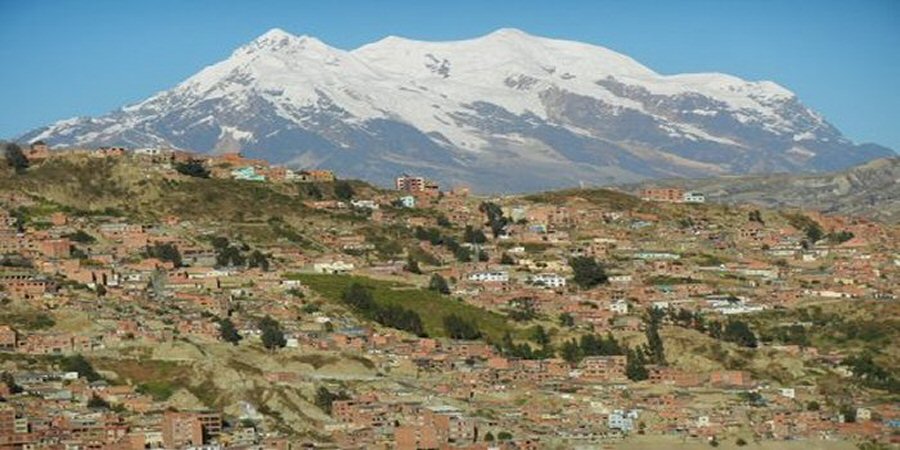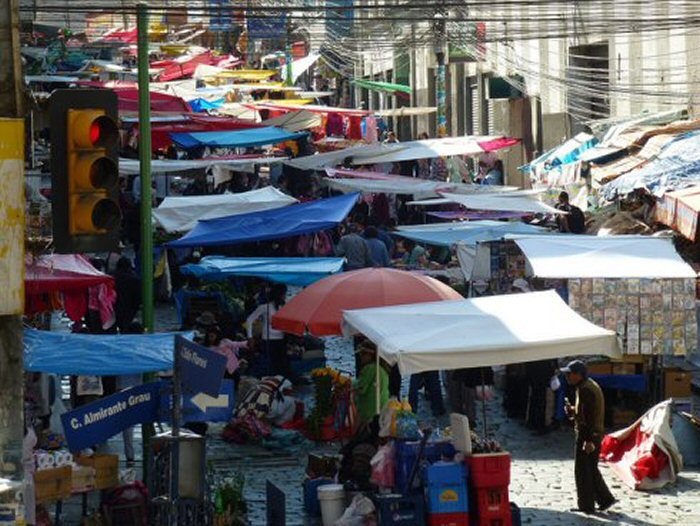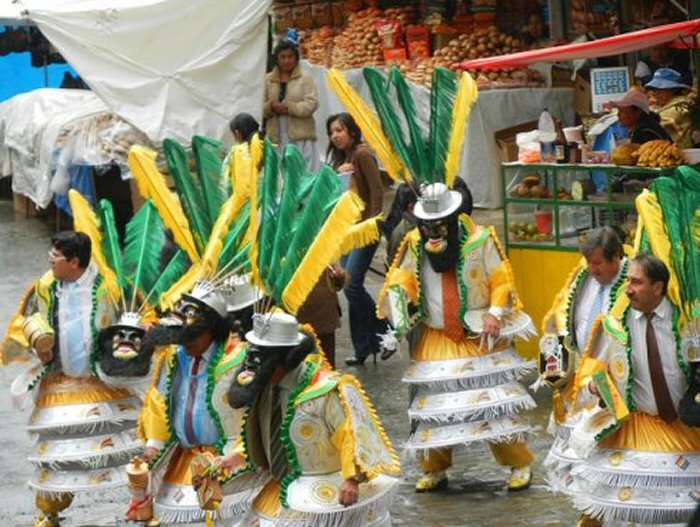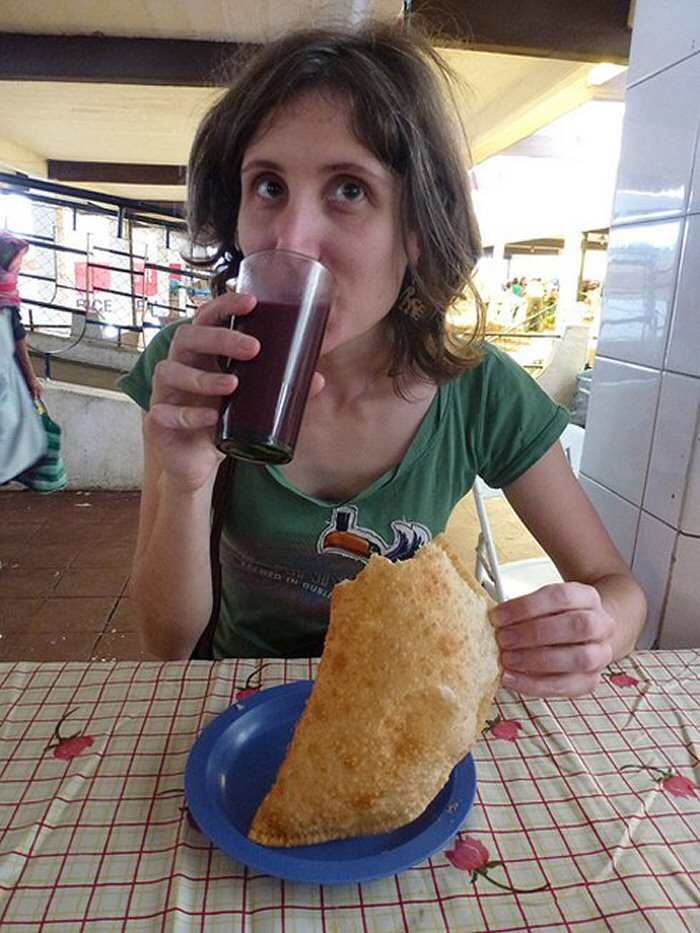Rosanna Bird: Why I Live in La Paz

Living in La Paz, Bolivia
| advert | Stay Free as a House Sitter. The Win Win for Pet Lovers That Travel
Describing herself as a serial expat, Rosanna Bird had already done stints abroad in Romania, South Korea and Taiwan before she and her boyfriend decided on an impermanent move to Bolivia. Beginning in January 2012, with a flight to Brazil, they zig-zagged through Argentina, Uruguay and Chile before their current extended stop in La Paz.
I’m sure you’ve never heard this before: where are you from?
I was born in Spain but moved to England when I was three years old. Although my family are all from the North or the Midlands, I’ve spent most of my time in London, so I’d say I’m a Londoner more than anything else.
And what did you do there, then?
I was an inquisitive child, then a shy teenager. After graduation, when I come back to London, I worked in the National Maritime Museum and continued living like a student – spending all my money at the pub every night.
How did you end up in La Paz?
My boyfriend and I were travelling around South America, with the intention of finding somewhere to stop and work for a bit. We had our sights set on Santiago, but when we arrived it just didn’t feel right for us so we kept moving. We came to Bolivia as volunteers in a small Aymara community just outside La Paz. Through the work we did with that organization, we made some contacts and found jobs and a place to live really easily.

Have you lived abroad before?
Yes, at university I did fieldwork in the Outer Hebrides and Romania. Once I realised that London was just too expensive on my minimum wage salary, I headed to Asia where I spent two years in Seoul, South Korea and two years in a small town in Taiwan.
So what’s so good about La Paz?
The first time I saw the city, with all the little brick houses clinging to the hillsides and Mount Illimani rising above in the blue sky, it was just amazing! In the rainy season, clouds fill the valley and the view is always changing as they drift by. For me, La Paz is one of the most beautiful cities I’ve seen. I also love the way it’s a bustling, relatively cosmopolitan city (I say relatively, because this is Bolivia after all) and yet you have a real community feel about the place. You can buy everything you need at the market instead of a supermarket; people greet you when you get on a bus; the whole central area is easily walkable. There are some amazing restaurants too, which by international standards are very well-priced.
And what don’t you like?
The drivers in La Paz are the most aggressive I’ve ever encountered. As a pedestrian, you have absolutely no rights whatsoever – just crossing the road can be quite a daunting task. The other thing is the disorganization. If you ask about some kind of official rule or procedure, you’ll get a different answer depending on who’s at the desk that day. And it’s not just bureaucracy either. For example, at one of my favourite restaurants, they’ll take the order and come back half an hour later to say they don’t have the ingredients. My meal might come an hour later than the person’s sitting next to me. (It’s worth noting that I keep going back to this place because the food is delicious!).

Do you feel like an insider or outsider?
The ex-pat community here isn’t very big but it is welcoming to new people. It’s incredibly varied so I’ve met lots of different types; academics, embassy workers, volunteers, authors, researchers, NGO workers…undoubtedly it has made me feel that I belong, not only to this little community in La Paz, but also to an international community of people who, like myself, are just passing through the city. On the other hand, I feel like an outsider to the Bolivian community. Part of it is my own fault for not learning Spanish better. The Bolivians I interact with regularly are either much wealthier than myself (living in big, criminal-proof houses and driving brand new SUVs), or much poorer than myself (working all day at a street stall with a baby tied to their back because they can’t afford childcare). I’m acutely aware of class differences here and I don’t know where to locate myself within the spectrum.
How do you support yourself?
I teach English at a language institute. Most of my students are corporate clients so I often travel to their offices to teach. The pay is not great so I have to be really careful with how I spend my money. I’ve had to change my lifestyle quite a bit (not going out as much as I used to, doing my laundry by hand etc), and I still only earn enough to cover my expenses. It has really made me think about necessities and luxuries in a different way.
Do you have any advice for our readers contemplating teaching English in La Paz?
It’s all about who you know. You can try emailing schools and institutes before you arrive, but its much easier to make contacts once you’re here. Tell everyone you meet that you’re interested in teaching and you’ll be able to pick up private classes through word of mouth. Arrive with some savings to help you set-up and to get you through lean times; there are a lot of holiday periods in Bolivia and students often cancel last minute so your monthly pay can vary considerably.

Any advice for wannabe La Pazians? (I’m sure this is wrong. What do you call yourselves?)
If you want to be a paceño (or paceña if you’re female), just take it slow. The altitude is a killer – even though I’ve been here ten months and am well acclimatised, I still get winded when trying to rush up a hill. The other thing is that no one does anything quickly here (except speed through a red light), so it’s far less stressful if you slow down to Bolivian time.
Is the move permanent?
No, the job I’m in now is not sustainable long term. I’d have to really hustle to make enough money from teaching. We’re going to continue travelling in South America, volunteering some more and visiting friends, but eventually I think we’ll head back to Asia – I really miss the food! – although not necessarily as a permanent move (I don’t know if I could ever make a permanent move).
Finally, tell us about something typically La Paz
Road closures! La Paz has very few access roads so it’s really easy to cut off the city. I’ve lost count of how many times I’ve been unable to get to work in the South Zone of the city because a road blockade or protest march has prevented all transport from getting into and out of the central area. Combined with transport strikes and numerous public holidays, a five day work week often gets shortened.
—————————————————————————————
Rosanna is an itinerant TEFL teacher and serial expat, working her way around the world since 2007. In between jobs, she travels, volunteers and dreams of the next destination. Currently in South America, you can follow her slow travels at strollingsouthamerica.wordpress.com.

Get Our Newsletter. It's Where The Jobs Abroad Are
